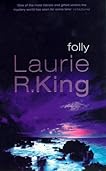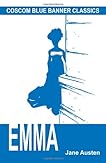 Mansfield Park
Mansfield Park by
Jane AustenMy rating:
4 of 5 starsI have to admit that this is my least favorite of Jane Austen's novels. Her character, Fanny Price, is just a little too humble and nice. I think everyone would like her better if she just got angry with the way she was treated from time to time. She was a niece of her mother's sister who was taken in by the family when she was about 11. Her own mother did not marry well and the poverty of her home and the large number of siblings prompt her Aunt Norris to suggest to her sister that Fanny come to live at Mansfield Park. Fanny begins her life with the four Bertram cousins, and while she is educated, she lives a life of a half-servant, waiting on her Aunt Bertram.
As the novel progresses, we see the superficiality of her cousins and their parents as well as the interfering hypocrisy of her Aunt Norris. Sir Thomas has made his wealth by dealing in slavery, his wife is so indolent and self-absorbed that she neglects her children and does not seem at all interested in developing their character, which leads to disastrous consequences as the book progresses. As with most of Jane Austen's books, the main focus of the book is marrying someone wealthy.
Fanny somehow has managed to have a deep moral sense and spirit of humility and stands in contrast to her cousins. The only one whom she has a relationship is her cousin, Edmond, the youngest son. His desire is to take Holy Orders and, unlike most wealthy young men of his class, does it from a true desire to minister to the people he is called to serve.
Into this mix come a brother and sister who are visiting the local Vicar. While they are superficially charming, they are extremely shallow and amoral. Edmond falls in love with Mary and while she tells him that she will never be a clergyman's wife as there is no prestige or income, she flirts with him outrageously and tries to change his position. Her brother is very attached to the two older sisters, but eventually decides to flirt with Fanny to amuse himself and ends up falling in love with her.
I have to admit that this is my least favorite of Jane Austen's novels. Her character, Fanny Price, is just a little too humble and nice. I think everyone would like her better if she just got angry with the way she was treated from time to time. She was a niece of her mother's sister who was taken in by the family when she was about 11. Her own mother did not marry well and the poverty of her home and the large number of siblings prompt her Aunt Norris to suggest to her sister that Fanny come to live at Mansfield Park. Fanny begins her life with the four Bertram cousins, and while she is educated, she lives a life of a half-servant, waiting on her Aunt Bertram.
As the novel progresses, we see the superficiality of her cousins and their parents as well as the interfering hypocrisy of her Aunt Norris. Sir Thomas has made his wealth by dealing in slavery, his wife is so indolent and self-absorbed that she neglects her children and does not seem at all interested in developing their character, which leads to disastrous consequences as the book progresses. As with most of Jane Austen's books, the main focus of the book is marrying someone wealthy.
My objections to the book are that it sags in the middle under the weight of too many examples of the superficial details of the main characters lives. Fanny is appalled at their behavior and that redeems her, not because she is a prig, but because she stands alone against overwhelming derision. Her own background in her parents home is chaotic at best and she could hardly have learned such virtues there or at Mansfield Park. I think it is this strength of character that keeps her from being a simple character in a morality play. While this is a harder book to read that any of Austen's other works, it is still filled with the kinds of things we expect from her works.
View all my reviews
 The Tale of Hawthorn House by Susan Wittig Albert
The Tale of Hawthorn House by Susan Wittig Albert

















































